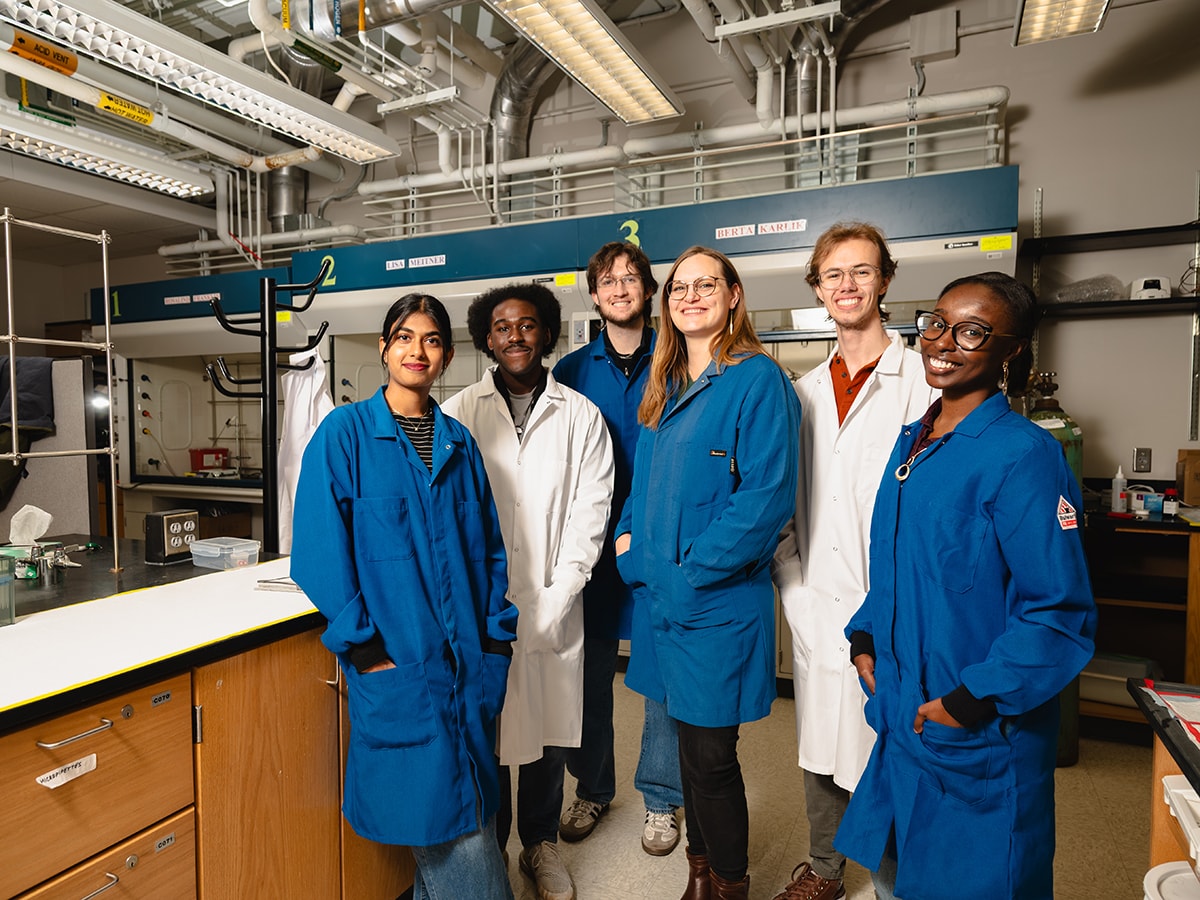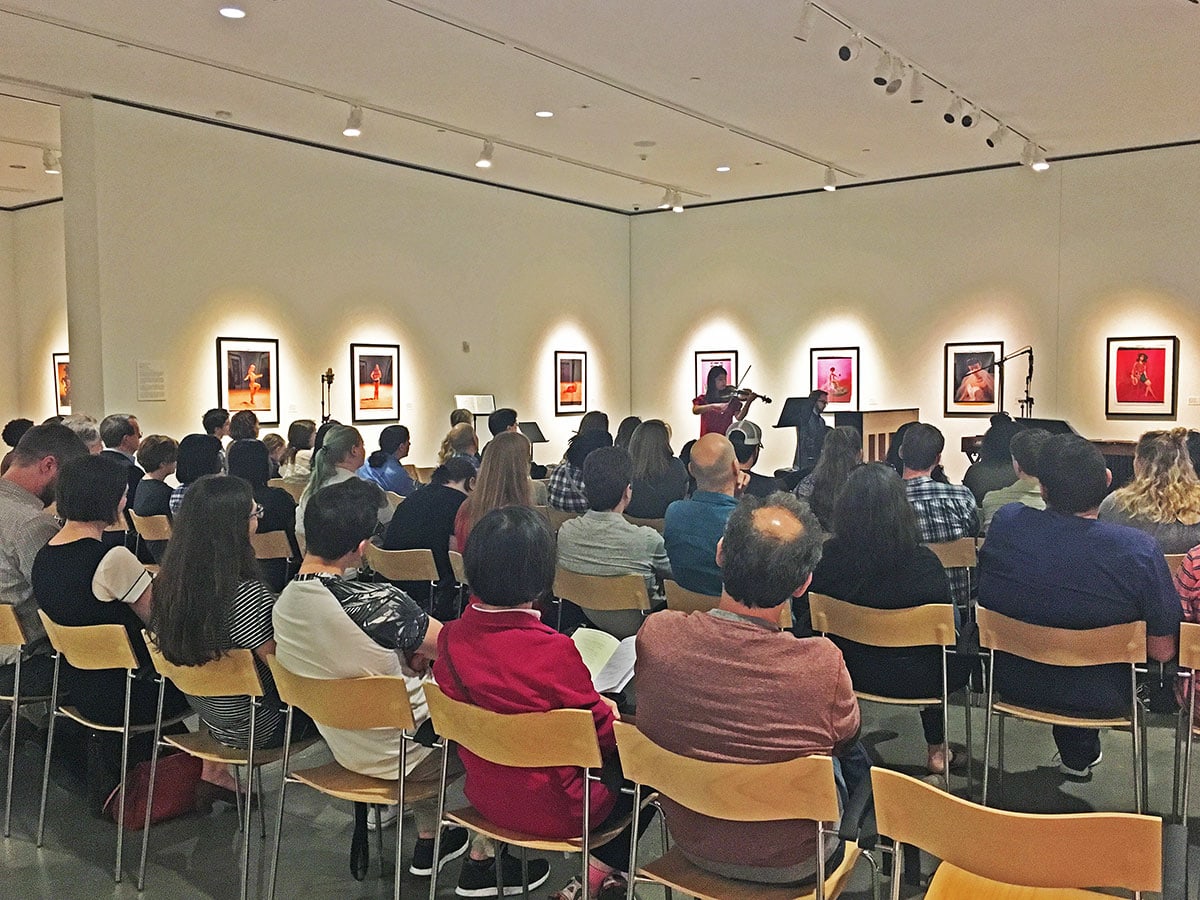
The University of Alabama at Birmingham offers a unique academic experience for students who plan to pursue medical, dental, or optometry school. Through the Early Medical School Acceptance Program (EMSAP), high-achieving UAB undergraduate students with diverse majors can explore a flexible slate of interdisciplinary courses, participate in special seminars, and are guaranteed admission to the UAB Heersink School of Medicine—or the schools of Dentistry or Optometry—after completing their bachelor’s degrees.
The program offers plenty of opportunities for students to participate in undergraduate research projects alongside renowned faculty members. In some cases, students also publish their research.
This past academic year, three EMSAP students—who also study within the College of Arts and Sciences—published articles as first authors in peer-reviewed journals, a significant milestone for the students and the program.
Kaitlin Ross—a cancer biology major from Satsuma, Alabama—published an article titled, "The Ethics of Weight–Loss Drugs: Patient Autonomy vs. Societal Beneficence,” in the Penn Bioethics Journal.
According to Ross, “This paper explores society’s views on dieting and weight-loss drugs, highlighting ethical concerns around their accessibility and use. It examines how dieting is tied to success and self-worth.”
Her research dives into case studies that illuminate challenges and ethical issues, while also examining potential health benefits. “Ultimately, it calls for more research to ensure ethical and effective weight-loss treatments,” said Ross.
Ross enrolled at UAB because she wanted to pursue research. Through EMSAP, she quickly found an opportunity while taking a course with Greg Pence, PhD, professor in the Department of Philosophy and director of the EMSAP program.

“While taking Dr. Pence's ‘Intensive Bioethics Seminar’ for EMSAP students, I was mentored on a bioethics paper concerning weight-loss drugs where I further developed my passion of bioethics and, through [Pence’s] encouragement, submitted my paper to be published,” said Ross. “Coming from a small town with little exposure to research, I am incredibly grateful to UAB and its mentors for providing me with the opportunity to apply my passions in a meaningful way.”
Ross wasn’t the only EMSAP student whose research was featured in the Penn Bioethics Journal. Eshika Kudaravalli, a Hoover native majoring in neuroscience, published an article titled, “Navigating the Neural Divide: Ethical Considerations in Sex Differences Research in Neuroscience,” in the same issue as Ross.
“The article discusses the importance of being careful when studying differences in the brain between men and women,” said Kudaravalli. She notes that research needs “stricter guidelines” to ensure that when researching scientific differences it is done in a way that improves health outcomes.
For Kudaravalli, conducting research as an undergraduate student is a rich, interdisciplinary experience. “UAB’s dedication to interdisciplinary exploration has not only strengthened my scientific curiosity but has also empowered me to approach pressing health challenges with a holistic perspective, reinforcing my passion for impactful research,” said Kudaravalli.
Neha Singaravelan—another EMSAP student who hails from Houston, Texas, and is majoring in cancer biology—agrees that undergraduate research can be a gamechanger for students.
“Conducting undergraduate research at UAB has been very meaningful and transformative. It is great to have the opportunity to not only learn new biological and biochemical techniques but also contribute to the vast field of research,” said Singaravelan.
And her contributions are already significant. Her paper, “Polyphenol-Based Prevention and Treatment of Cancer Through Epigenetic and Combinatorial Mechanisms,” was recently published in the peer-reviewed journal Nutrients. In addition, her article was featured on the cover, a major achievement for any researcher (especially a sophomore in college).

Singaravelan launched her research path when she started working with Trygve Tollefsbol, PhD, Distinguished Professor in the Department of Biology, in August 2023. Tollefsbol is a prolific researcher who has published numerous articles and books on topics including epigenetics, telomerase, aging, and cancer. While working with Tollefsbol, Singaravelan took an interest in cancer research, specifically polyphenols.
According to Singaravelan, a significant amount of research has been conducted on the anticancer properties of polyphenols, which can be found in many of the foods we eat. Her research took those insights a step further, though.
“[T]here is not much focus on using combinations of polyphenols,” said Singaravelan. “Combinatorial polyphenol treatment can cause the anticancer effects of each individual polyphenol to work in synergism and create an additive effect thus providing a more efficacious treatment against cancer as compared to using polyphenols individually.”
Given UAB’s Research Strategic Initiative: Growth with Purpose—as well as the College’s strategic emphasis on both Student Success and Research— it is affirming and inspiring to see three students making such significant scholarly contributions during their undergraduate years.


